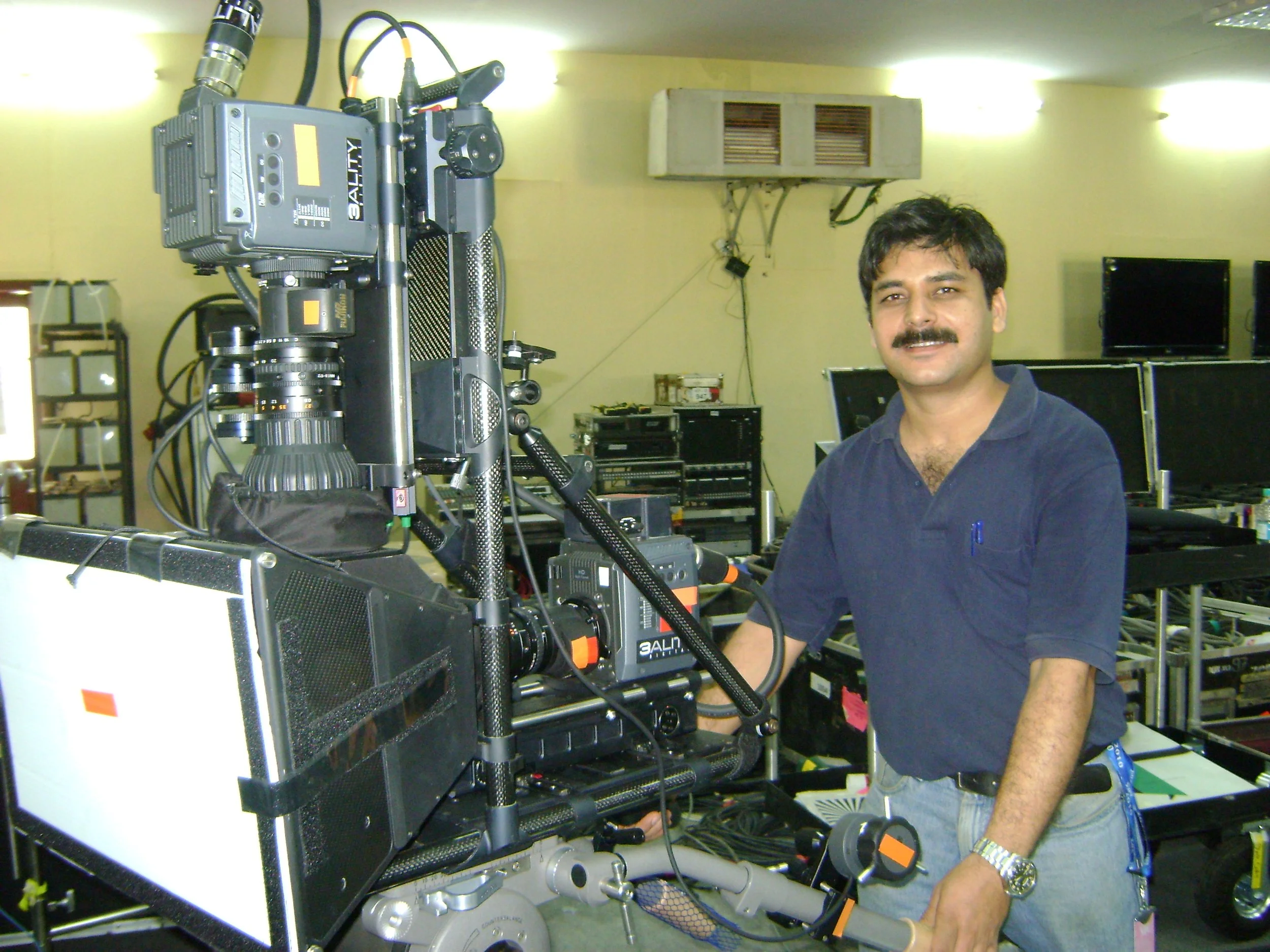Sandeep Mehta
Age: 50
Fields of expertise: Project management, workflows, Broadcast infrastructure
Years of experience: 15+ years
Correspondence available in English, Hindi and Punjabi
Current residence: Mumbai, India
Learn more about Sandeep
-
A camera was not working in cricket stadium. It was dark outside. I started following the camera cable, and touched a LIVE electrical wire that someone had rigged improperly for LED perimeter boards for in-stadia advertisement. I had an electrical shock. Fortunate to have survived.
-
During test cricket coverage, it kind of gets boring when nothing is happening on field for many many hours (no wickets, no fours or sixes). We used to play with paper balls to keep everyone awake in the Television Production Room. It was fun.
-
It was way back in 1994. A gentleman put colour bars on-air to identify that correct line was patched on-air (it used to be patch panel in those days, and the signals was analogue video).
-
Broadcast jobs will take you to places you have never imagined. As always, there is cost to pay, you will be away from family for many many months, almost always on the road.
-
There was no formal training when I started. It was only by working alongside seniors, observing and asking questions that helped me learn. I wish there was a course, or platform that could provide introductory training. Glad it is coming reality now on Leo-mentor.com.
-
We shall never forget that H Sync, V Sync, and colour sub carrier were three different signals when cameras had three Vidicon tubes for Red, Green and Blue colour signal pickup. I worked with some of these equipment in early 90s.
-
RTS Comms Systems – simple yet powerful.
-
EVS XT VIA
-
Welcome to Television Productions
By - Sandeep Mehta (www.linkedin.com/in/sanmehta), 14 Jan 2024
“Television is a medium to connect advertisers with consumers.” This is what my teacher taught me at Film and Television Institute of India (ftii.ac.in) in year 2003. This has become even more true with television now moving from television screens to mobile screens in our hands. Now when you download an app on your TV or on your mobile to watch any media programme, the app provider knows your location, watching habits, possibly your browsing history on the browser, may be your contacts, and so much more. They know so much more about their viewers than ever before and can nudge you to watch more in your area of interest.
Broadcast Engineers run technical side of the television industry. A Broadcast Engineer performs diverse technical and production responsibilities, some of them are listed below: -
1. MCR Engineer
2. CAR Engineer
3. Ingest and Playout Engineer
4. Transmission Engineer
5. Communications Engineer
6. Vision Engineer
7. Video Guarantee Engineer
8. Audio Guarantee Engineer
9. RF Engineer
10. Networking Engineer
11. IT Broadcast Engineer
12. And many more such titles.
All these above positions need basic understanding of broadcast engineering concepts, and the specialised knowledge in one of the core areas. There are many different genres of television productions, some of them are: -
1. News
2. LIVE Sport Broadcast
3. Entertainment
4. Reality Television
5. Documentaries
6. Music Videos
Every genre has its own skill set requirements, work culture, production timelines and technology requirements.
Out of all above LIVE Sports uses latest broadcast technologies. Take note that in LIVE Sports there is no retake.
What it takes to be successful in Television Industry?
Soft Skills - Apart from key core technical skills, soft skills are very important to succeed in this industry. These include punctuality, people skills, ability to work as a team, work on weekends, late hours. Add to this working in not so comfortable outdoor locations, frequent travels, long outstation tours away from family etc when you work for LIVE Sport productions.
Skill Upgrade - You upgrade your phone every few years at least. It is not your choice but compulsion, as the technology is moving very fast and if you do not upgrade your phone, it will not be able to support latest apps and its operating system will become vulnerable to data theft. Similarly, as Broadcast Engineer you need to update your skills on regular basis, otherwise your skills will become less and less relevant, and at some point, become irrelevant for market demands. So, keep updating your skills as frequently as you change your phone.
Other Areas of Television Productions: - There are so many other titles and expertise in television productions, that you must familiarise yourself as soon as you choose Broadcast Engineering as your field to make living: -
1. Production Management
2. Producer
3. Executive Producer
4. Creative Director
5. Live Editing
6. LIVE Replay
7. Camera Operation
8. Editing and post-production
9. Sound Mixing
10. Graphics designing
11. Commentary
12. Show Host
13. Set Design
14. Lighting
15. Floor Management
16. Talent Management
17. Facility Management
18. Budgeting and Finance
More and more television production and streaming services are now moving to cloud. In coming days, knowledge of television productions and cloud technologies will be key driver of success of future broadcast engineers.
All the best for choosing Broadcast Engineering as your profession. Let me know if you would like to know more about this field.

